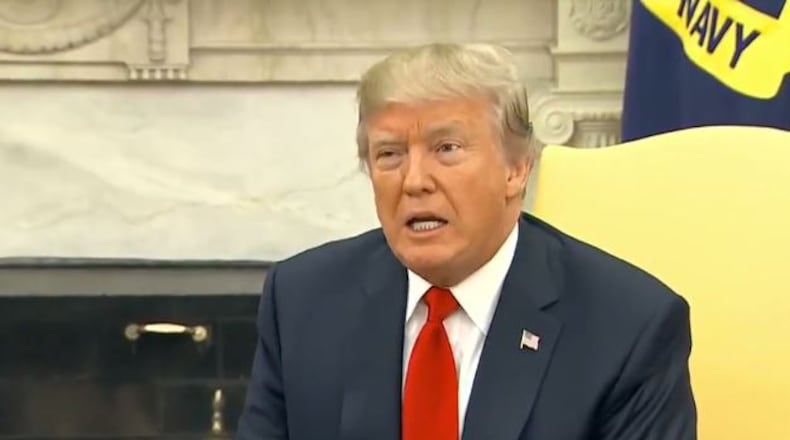Those payments were never expressly approved by the Congress, leading many Republicans to charge that the spending had been illegal, and spurring the President to block the payments.
And that's where the subject gets a bit complicated.
"The Congressional Budget Office estimated that not funding CSR would lead to a net increase of $194 billion in more spending over the next decade," said health care researcher David Anderson of Duke University.
But wait - how would halting an expected $10 billion in payments in 2018, a move that would save Uncle Sam money - how would that lead to such a big cost for the feds over the next decade?
The answer is simple - health insurers are expected to increase premiums to make up for the lost federal dollars, and that would trigger an increase in another consumer subsidy that is part of the Obama health law.
"While the federal government would save money by not making CSR payments, it would face increased costs for tax credits that subsidize premiums for marketplace enrollees with incomes 100-400% of the poverty level," wrote officials of the Kaiser Family Foundation, which focuses on health care policy matters.
Those subsidies are known as "Advance Premium Tax Credits," and can go to families of four with a yearly income of up to $97,000.
"The biggest effect from the termination of cost-sharing subsidy payments is that premiums are going up to offset the loss," said Larry Levitt of Kaiser, who labeled the impact of the Trump CSR decision, "confusing and complicated."
One example of that started to appear on Monday in in Pennsylvania, as state officials said health coverage "rates will increase by an average 30.6 percent in the individual market," instead of by 7.6 percent.
One recent story from the Miami Herald found that the Trump move on CSR payments would mean a big increase for Florida in the amount of federal dollars spent to subsidize those who get their health insurance through the Obamacare exchanges in that state.
Some experts argue that Mr. Trump's decision will have the biggest negative impact on insurance rates in states that are normally in the Republican column - especially if those states did not move to expand the Medicaid program during the Obama Administration.
In recent months, a bipartisan group of Senators had been working to figure out a way to tinker with the Obama health law, and make sure the CSR payments were made by Congress, led by Sen. Lamar Alexander (R-TN), who told reporters on Monday evening that he had already spoken with the President about his CSR decision.
Some GOP Senators have grumbled in recent weeks about the talks between Alexander and Sen. Patty Murray (D-WA), worried that it will contain little in the way of concessions by Democrats on the operations of the Obama health law.
That's a concern for Republicans in the House as well, and could lead to a stalemate in Congress on any short-term effort to deal with the Obama health law.
"At this time, in my opinion, doing nothing is an acceptable outcome for liberal policy preferences while doing nothing moves policy further away from stated conservative policy preferences," said Anderson of Duke University.
"I want to get healthcare that's much more affordable and much better healthcare, and that's what we're doing," the President said on Monday when asked about the CSR payments decision.
What that exactly means for the President is still not clear - but inaction seems like it will cost the feds extra money.
For example, officials in California found that if the CSR payments were eliminated, the cost of subsidies for people buying insurance in that state would go from $750 million a year, to over $975 million, an over 30 percent increase.
About the Author
